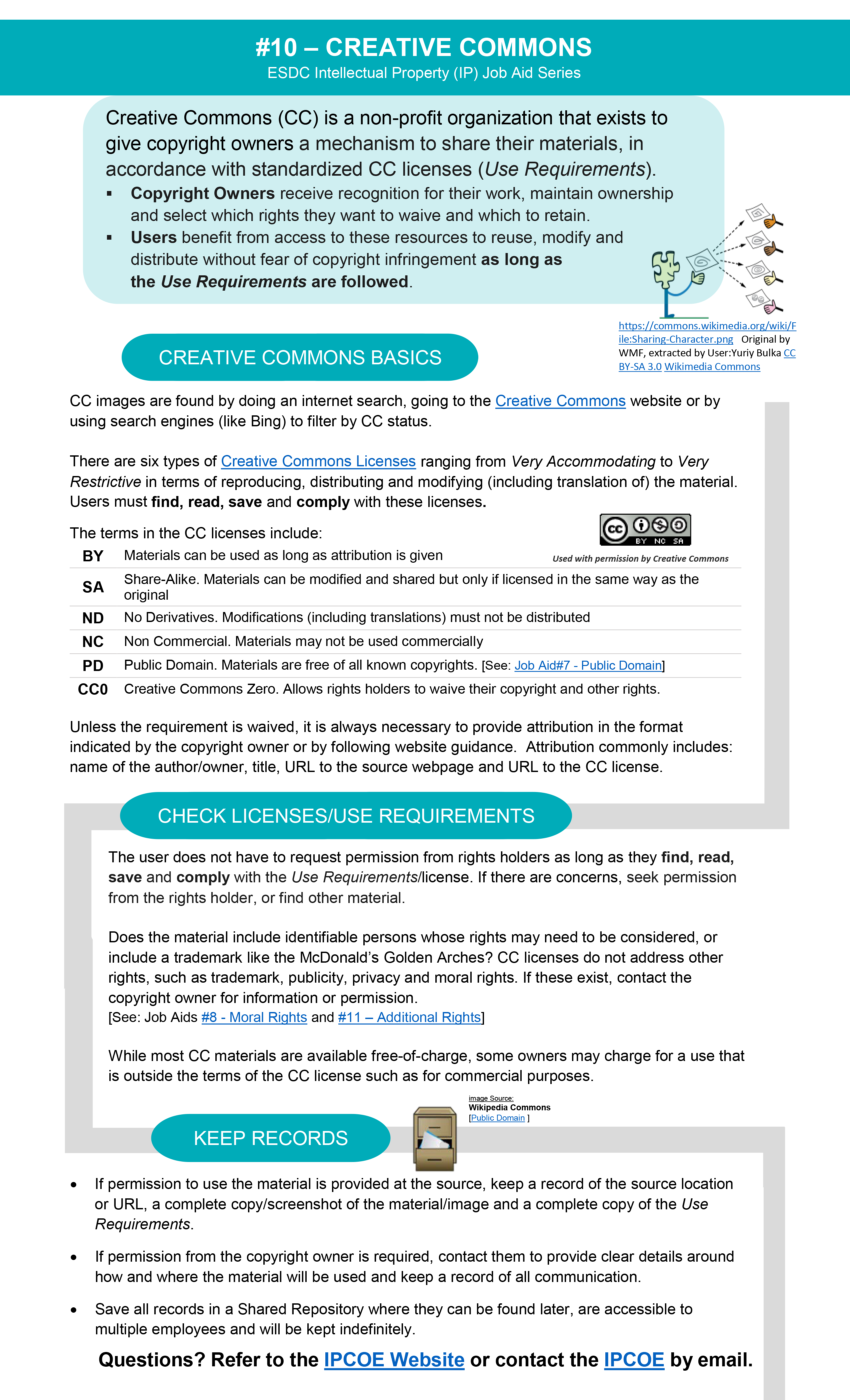Creative Commons
ESDC Intellectual Property (IP) Job Aid Series
ESDC Intellectual Property (IP) Job Aid Series
Long Description
Creative Commons (CC) is a non-profit organization that exists to give copyright owners a mechanism to share their materials, in accordance with standardized CC licenses (Use Requirements).
- Copyright Owners receive recognition for their work, maintain ownership and select which rights they want to waive and which to retain.
- Users benefit from access to these resources to reuse, modify and distribute without fear of copyright infringement as long as the Use Requirements are followed.
Creative commons basics
CC images are found by doing an internet search, going to the Creative Commons website or by using search engines (like Bing) to filter by CC status.
There are six types of Creative Commons Licenses ranging from Very Accommodating to Very Restrictive in terms of reproducing, distributing and modifying (including translation of) the material. Users must find, read, save and comply with these licenses.
The terms in the CC licenses include:
- BY
- Materials can be used as long as attribution is given
- SA
- Share-Alike. Materials can be modified and shared but only if licensed in the same way as the original
- ND
- No Derivatives. Modifications (including translations) must not be distributed
- NC
- Non-Commercial. Materials may not be used commercially
- PD
- Public Domain. Materials are free of all known copyrights. [See: Job Aid - Public Domain]
- CC0
- Creative Commons Zero. Allows rights holders to waive their copyright and other rights.
Unless the requirement is waived, it is always necessary to provide attribution in the format indicated by the copyright owner or by following website guidance. Attribution commonly includes: name of the author/owner, title, URL to the source webpage and URL to the CC license
Check licenses/use requirements
The user does not have to request permission from rights holders as long as they find, read, save and comply with the Use Requirements/license. If there are concerns, seek permission from the rights holder, or find other material.
Does the material include identifiable persons whose rights may need to be considered, or include a trademark like the McDonald's Golden Arches? CC licenses do not address other rights, such as trademark, publicity, privacy and moral rights. If these exist, contact the copyright owner for information or permission.
[See: Job Aids - Moral Rights and – Additional Rights Holders]
While most CC materials are available free-of-charge, some owners may charge for a use that is outside the terms of the CC license such as for commercial purposes.
Keep Records
- If permission to use the material is provided at the source, keep a record of the source location or URL, a complete copy/screenshot of the material/image and a complete copy of the Use Requirements.
- If permission from the copyright owner is required, contact them to provide clear details around how and where the material will be used and keep a record of all communication.
- Save all records in a Shared Repository where they can be found later, are accessible to multiple employees and will be kept indefinitely.
Questions?
Refer to the Intellectual Property Centre of Excellence (IPCOE) or contact the IPCOE by e-mail at: NC-ASSETS-IP-POLICY-POLITIQUES-BIENS-PI-GD.
